Write & Lift is an ethos of personal and spiritual development through conscious physical exertion and practice of the writing craft. Through this effort to strengthen our bodies and minds, we become anti-fragile and self-respecting sovereign individuals. Through this effort, we may stand against untruth and evil and create a new culture of vitality, strength, and virtue
The Metaphysics of White Boy Summer
At its core, White Boy Summer is an articulation of the spirit.
All ideas have the potential for a memetic effect, but very few reach a point of broad cultural transmission. They require the right soil, mechanisms for distribution, cultural inertia, and the right voices to propagate them. The internet serves as a force multiplier.
Despite what shallow culture writers might suggest, WBS isn’t about racial or ethnic tribalism. It's about life force—a current, a vibe—the reclamation of a spirit that has been systematically stripped from young men over the last five years..
In 2021, when White Boy Summer was first coined by Tom Hanks’ son Chet Hanks, we were at the peak of racial and political tension. The previous “Summer of George Floyd” ushered in a new cultural zeitgeist that we hadn’t seen since the escalation of the Vietnam War protests in the late 60s. What was described by politicians, religious leaders, social justice advocates, and institutions as a necessary racial “awakening,” throughout middle-America quickly devolved into violence, property crime, racial intimidation, and more. Months before, people were told not to leave their homes due to the fear of COVID. When tens of thousands gathered in protest in cities across the country, these same voices made an exception. Pundits attempted to gaslight the public into believing that the violent actions of left-wing radicals in cities like Portland and Seattle were noble struggles against a militarized and racially discriminatory police force. Kyle Rittenhouse became the national symbol of “whiteness” for defending himself with lethal force against three white, left-wing protestors who attempted to kill him. Arson, property crime, and rates of black-on-black homicide spiked exponentially. Harsh tribalism embedded itself in the culture, nullifying any attempt at good-faith discussion between either side.
Scenes went viral. In Washington D.C. a group of mostly masked white protesters stopped outside restaurants, cornered diners, and demanded that they raise their fists in solidarity. White men, in particular, were given mandatory racial bias trainings, and grilled in Soviet style struggle sessions about their supposed privilege and suppressed racial bigotry. Those who pushed back during the insanity were fired, blacklisted, doxxed, or turned into social pariahs. Due to pressure from a loud vocal minority of activist groups, companies, colleges, government institutions, and social media platforms began to double down on race-based policies that attacked the imagined racial character of “white people.” It was the Rodney King riots times one hundred. It was unlike anything we’ve seen in the last seventy years.
There was a silent majority watching the chaos unfold—white, black, hispanic, and asian—who saw this cultural explosion for what it was: a religion of resentment, hatred, real racial animosity, Cluster-B disordered psychosis, and ingratitude. Young men, trapped in college classroom Zoom meetings or in a first “grownup” job, came of age surrounded by a squawking chorus of voices who actively hated them. It was only a matter of time until the pendulum reversed its course.
The phenomenon of “White Boy Summer”—born as internet phraseology and morphing into something resembling a micro-cultural shift—exists as more than a racial designation or a seasonal fad. Beyond the glib surface readings from journalists seeking to stoke outrage, it speaks to a vitalistic energy returning to a generation of young men who have been starved of meaning, ritual, and brotherhood.
The Awakening of Thumos
The ancient Greeks recognized thumos as the vital spirit that animated the souls of warriors and heroes. The fire in the chest that compelled men toward greatness and nobility. This concept ran through their poetry, philosophy, athletic competitions, and military culture. Plato placed thumos between reason and desire in his tripartite model of the soul; the spirited element aligned with courage, honor, and righteous indignation. This vitalistic force is antithetical to today's mechanistic worldview that reduces existence to mere cause and effect. The difference between the organism and the machine, between life and its simulation.
Today's young men have been raised in the simulation. They were born into a world where testosterone levels have fallen generation after generation, where digital placeholders replaced initiatory rites, where masculine virtues were rebranded as diseases to be eradicated, where distraction is cheap and abundant while the ability for upward mobility continues to pushed further out of reach. Young men have became spectators of life rather than participants. Consumers instead of creators. From the classroom to the office boardrooms, this is what they have been told: ignore your instinct, shun risk and adventure, deliver these KPIs. Sit down and shut up. Quit striving. Play by the rules we’ve established.
White Boy Summer represents a stubborn rejection of this entropy. It's the reclamation of physicality and the rekindling of thumos in the soul. This isn’t a reinvention as much as it is a reimergence of the standard energy of masculine youth. The reestablishment of a culture of vitality, joy, hard work, adventure, and spirit—the Jungian stage of the “Hero” as mass consciousness. A resurgent vitalism is emerging in real time. The men who embody this shift move through the world with a relaxed confidence that feels foreign to our anxious age.
In the Iliad, Achilles' thumos burns so hot that it threatens to consume him. In the Odyssey, Odysseus must govern his thumos to survive his trials and return home. The same spirited energy that launched a thousand ships and toppled Troy pulses through the seemingly trivial manifestations of White Boy Summer. When a young man dives headlong into cold water, hoists a heavy weight overhead, or stands atop a summit he's conquered through force of determination, he’s expressing an ancient impulse. The world bends to his will, not the other way around. Myth mobilizes men toward heroic action. Not literal myth, but myth as the animating story that propels a people toward their highest expression. White Boy Summer creates its own mythology; playful and rebellious, yet vital and bursting with energy beneath the irony. Calm in an age of anxiety, confident in an age of fragility, present in an age of distraction.
There is no defined “list of activities,” any more than there’s a designated representative. The term White Boy Summer itself is an affront to those who’ve demonized and warped the foundational understanding of “masculinity.” This, of course, has been interpreted by the mainstream left as a form of “soft racism,” when in reality it’s a joke designed to get them to show their cards—again. You can have “Black Girl Magic,” we don’t care. But we’ll make our own thing. The vast majority of young American men have multi-ethnic friend groups. Our society and culture are diverse. Joking about race, culture, and ethnicity is not taboo. The average white teenager thinks it’s funny that his black friend’s mom washes chicken in the sink before cooking it, just as the black friend thinks it’s weird that his white friend’s dad cares so much about his lawn. Yet somehow, after 10,000 years, people don’t understand that men bond through talking shit. There's an unspoken element of the carnivalesque here, a temporary ritual inversion of societal norms that ultimately strengthens and builds community.
The Spirit in the Flesh
Thumos does not exist as an abstraction. It manifests through the body. The ancient Greeks recognized this essential truth, which is why they combined philosophical education with physical training in their gymnasiums. Mind and body, logos and thumos, reason and spirit. These were not opposing forces but complementary aspects of the fully realized man.
The bodily expressions of White Boy Summer echo this understanding. The physical exertion, the sun-darkened skin, the exhausted muscles, the burned calories, the cold plunges, games of skill and strength. These aren't merely recreational activities; they are acts of embodied philosophy. The body becomes the vessel for the expression of the spirit.
Anthropologist Victor Turner wrote of “liminality”—those threshold states where everyday social structures temporarily dissolve, allowing for new possibilities and transformations. White Boy Summer creates liminal spaces where young men can experience the full range of their physical and spiritual capacities beyond the constraints of ordinary life. This is reflected in a rejection of modern aesthetics and norms. Building a movement necessitates at times, looking back; the bravado of 80s action heroes, extreme sports, racing fast and living on the edge, modern house remixes of 90s and early 2000s pop songs that lacked any and all of our modern disease of cynicism and self-awareness.
Friedrich Nietzsche, who understood thumos better than most modern philosophers, wrote of “great health”—a vitality so robust that it transforms obstacles into opportunities for growth. The platitude “whatever doesn't kill me makes me stronger” is true. The sunburn, the muscle soreness, the scraped knees, the failed attempts; all represent an expanding sense of self rather than avoided as threats to comfort.
The Brotherhood of Thumos
“Of all the joys that lighten our hearts, what joy is welcomed like a new friendship?” wrote Giovanni Rucellai during the Renaissance. The Medieval mystic Aelred of Rievaulx, in his treatise “Spiritual Friendship,” described friendship as a taste of heaven on earth, a glimpse of what waits in the beyond. The Aristotelian concept of philia — friendship based in virtue — represented the pinnacle of human connection.
And yet today's young people, particularly men, have never been more isolated. They play video games alone in darkened rooms and scroll through feeds of distant lives. They labor away in pods beside strangers who remain strangers. They sit silently on public transportation, earbuds in place to shield against the horror of conversation.
White Boy Summer, whatever else it might be, is fundamentally a rebellion against this isolation. It is young men in boats, on trails, around fires, lifting weights, sharing drinks, telling stories, plotting adventure. Present with one another in time and space. Moving as a pack rather than drifting as solitary atoms.
The Greeks understood that thumos flourishes best in company. The hoplites of Ancient Greece fought in tightly packed phalanxes, shield to shield, their courage amplified by the collective resolve of their comrades. The Olympic athletes competed before crowds of their countrymen, their excellence contributing to communal pride. Even the philosophers gathered in symposia, their individual insights sharpened through the exchange of dialogue.
In his work “Iron John,” poet Robert Bly lamented the loss of male initiation rites in modern society. He argued that without proper channels for masculine energy, men become either destructively aggressive or passively disengaged. What we’re starting to see is a spontaneous creation of new initiation rites, arising organically from the spiritual needs of young men. They challenge each other to go further, dive deeper, lift heavier, and endure longer. Since our culture and institutions have been unable to provide them, young men are creating them for themsselves.
White Boy Summer, beneath its casual and playful exterior, contains elements of this mythic structure. The departure from comfort, the crossing of thresholds, the endurance of trials, the return with new wisdom, compressed into seemingly simple recreational activities.
White Boy Summer laughs at the humorless scolds that currently run our institutions. It swims against the currents of irony and detachment that have dominated our cultural lives. It presents us with young men who can look one another in the eye and embrace without awkwardness. Who can leap from a rope swing without calculating the social media value of the moment. Who can forget, if only for an afternoon, the crushing weight of contemporary existence.
As always, thanks for reading.
-Joe





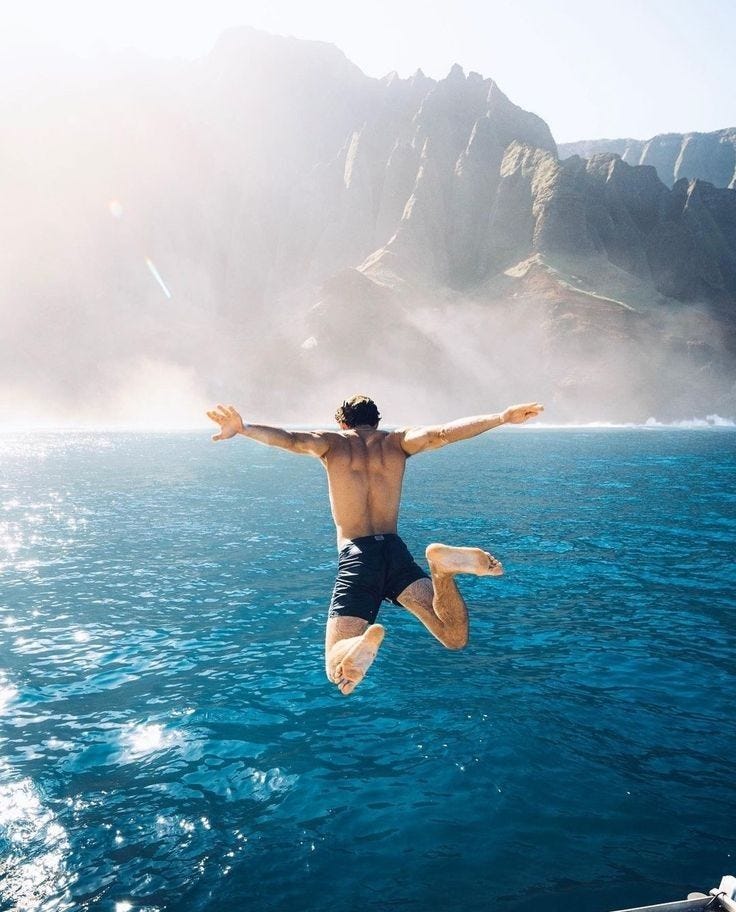
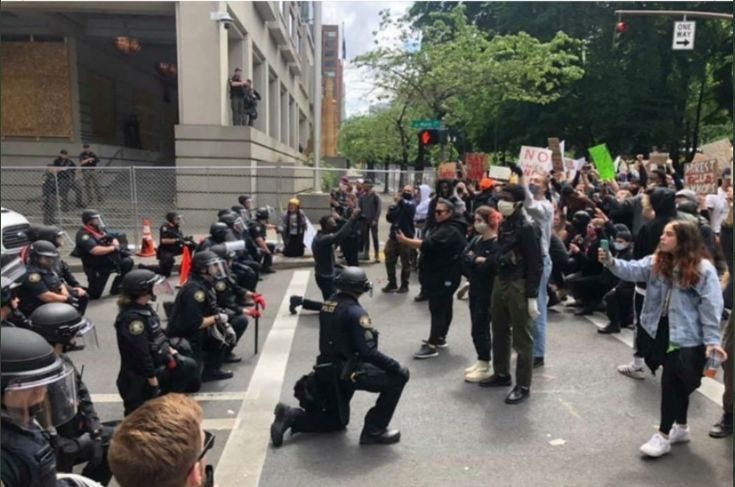
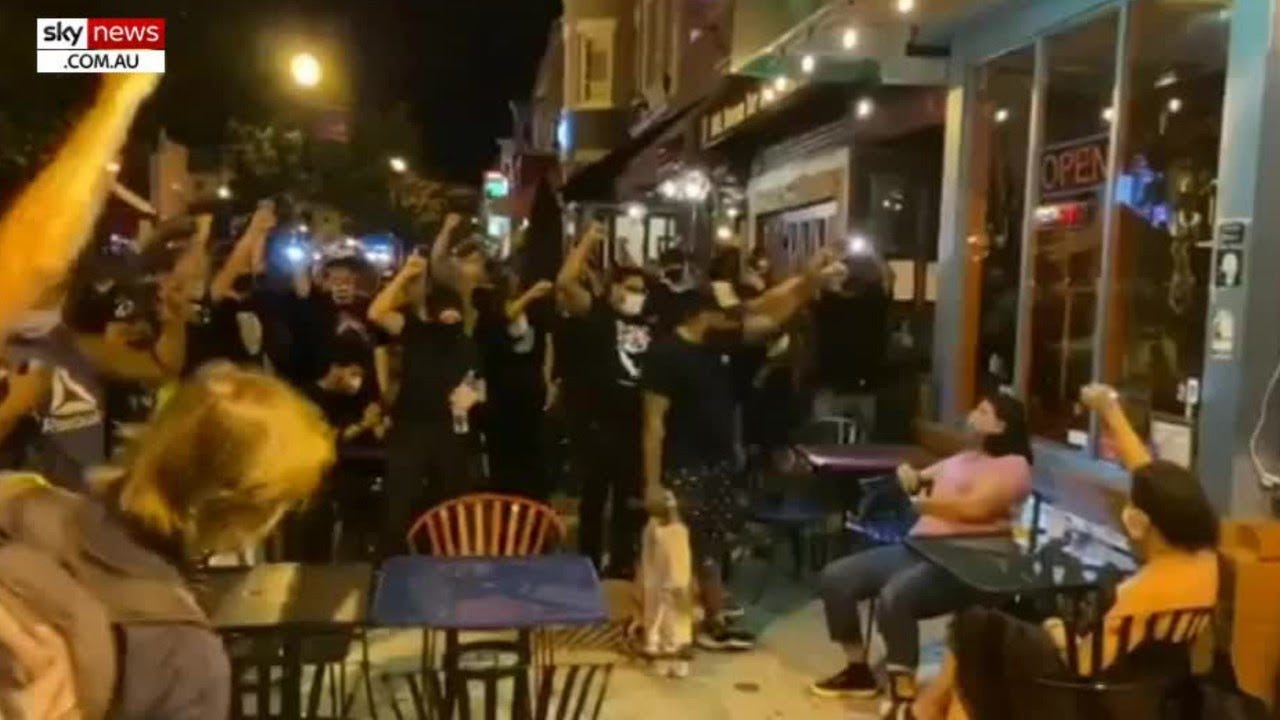
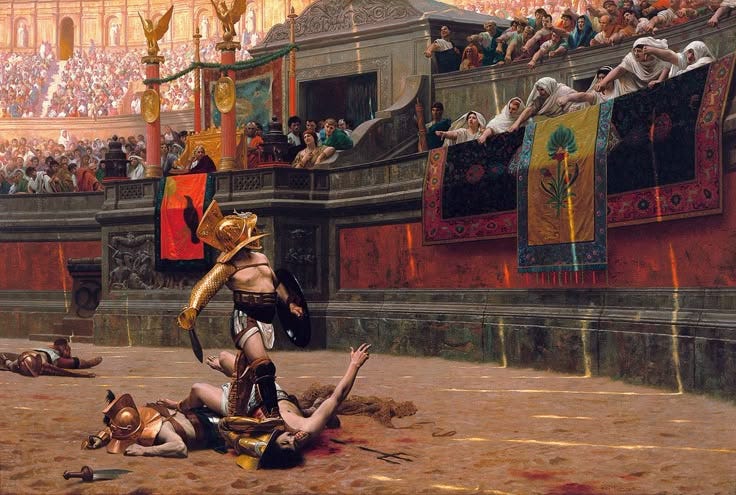

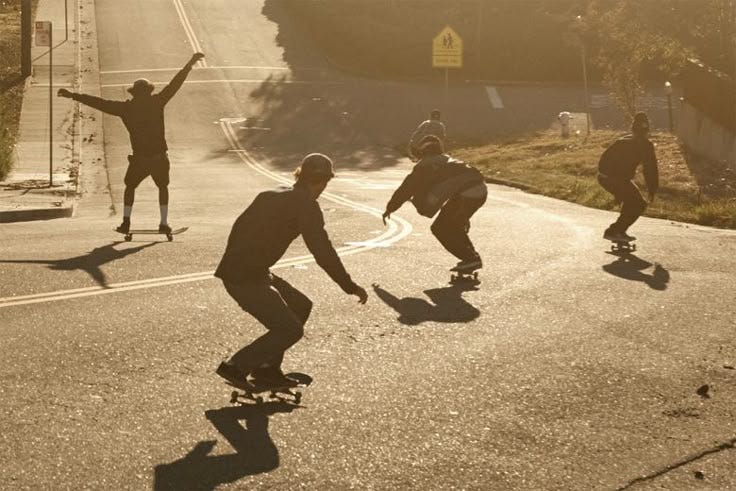

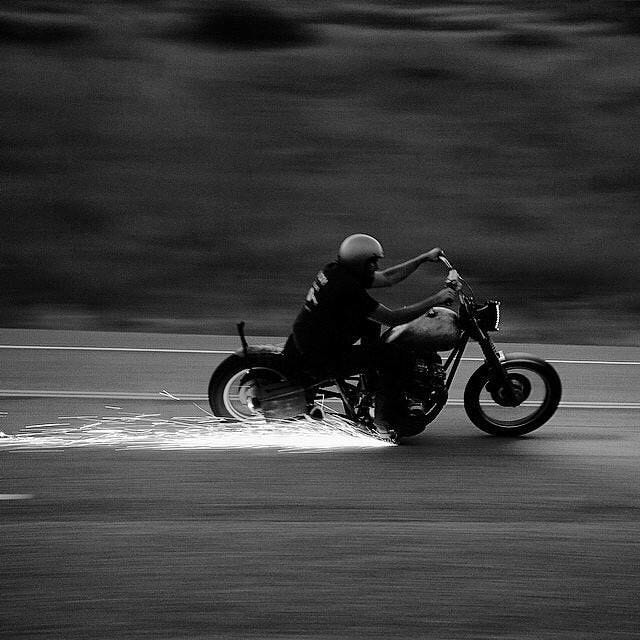

My son is 15 and I see a lot of this in him and his friends. We are encouraging it by leaving them the hell alone to figure it out for themselves.
The first time I heard the term White Boy Summer, it was in conjunction with a video of a young man (He actually looked like a pale Hispanic) and his friends in shorts and polo shirts and dockers, around a pool, seemingly spontaneously making an electric keyboard out of a watermelon. 🍉
I thought it was charming and a good use of time, on a summer afternoon?